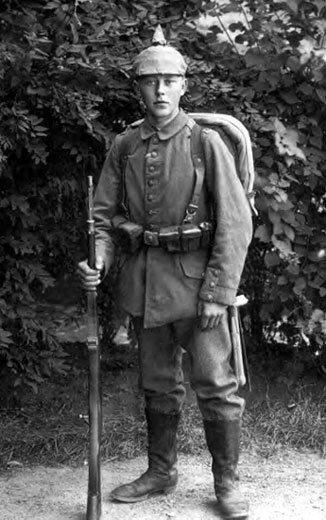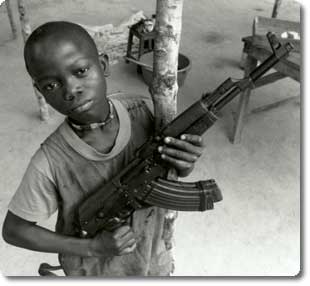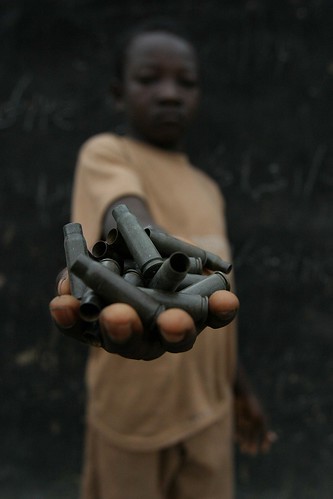 As noted in my previous post, children participating in military action is neither a new or specifically African occurrence. Children are not usually present as official enlisted (or conscripted) soldiers. Rather, they are found more often as members of militias and guerrilla groups.
As noted in my previous post, children participating in military action is neither a new or specifically African occurrence. Children are not usually present as official enlisted (or conscripted) soldiers. Rather, they are found more often as members of militias and guerrilla groups.In the example of German youths defending Berlin against Russian troops in Spring, 1945, fervent members of the Hitler Youth were readily available to take the place of the Wehrmacht's disintegrating forces. The Hitler Youth functioned as a highly militarized version of the Boy Scouts, meant to instill complete allegiance to the Third Reich and prepare youth of both sexes for a life of dedication to Germany. While the United States did not draft or enlist anyone under 18, many younger men lied about their age and joined the cause, anyway. Kurt Vonnegut's classic novel Slaughterhouse Five is subtitled "The Children's Crusade" because of the young age of the men who were called upon to fight and die for their country.
During World War I, as well, many German students and recent high school graduates enlisted in the army to defend the Fatherland. As much as we like to demonize Germany, it was not just they who used child soldiers during the "Great War." All participants needed as many willing men (and women) as they could get; World War I required soldiers like no conflict had in history to that point. Interestingly, Crownprince Leopold of Belgium, nephew of our friend King Leopold, served in the Belgian Army during the First World War. He enlisted at age thirteen.
The malleablity and suggestibility of young people is perfect for those who would direct their enthusiasm and yearning for responsibility toward immoral ends. Child soldiers are denied what we in the United States so often take for granted: a childhood.












